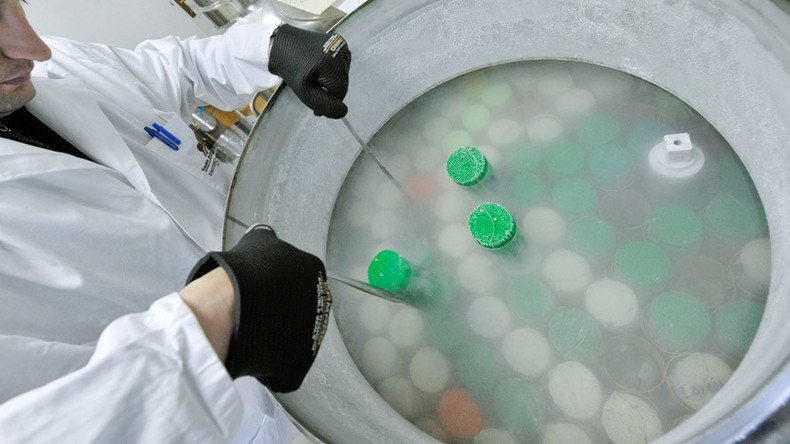Sperm bank accused of eugenics over flyer banning dyslexic donors

Dyslexic donors have been turned away from Britain’s largest sperm bank in order to “minimize genetic diseases or malformations” in children.
In a leaflet for potential donors, the London Sperm Bank listed dyslexia alongside a number of conditions that are deemed unacceptable among donors, including attention deficit disorder (ADD), Asperger’s and autism.
The clinic was accused of practicing eugenics by a dyslexic man who was barred from donating.
The Human Fertilisation and Embryology Authority (HFEA), which regulates the industry, said it had “never required or endorsed prohibiting people with dyslexia, dyspraxia, ADD, ADHD [Attention deficit hyperactivity disorder] and other disorders from becoming sperm donors.”
Sperm & egg donations increasing risk of incest, Cambridge academic warns http://t.co/2rtDLoigO8pic.twitter.com/oC8KjtjrHN
— RT UK (@RTUKnews) May 27, 2015The regulator has launched a review of the clinic’s practices, as discriminating against people with conditions could be illegal.
Dyslexic Oxford graduate Fred Fisher, 30, approached the clinic about donating sperm in November.
“I was really taken aback to see dyslexia listed as a neurological disease,” he said.
“I’d never thought they would turn people [away] for having dyslexia, especially given how important we are told science and entrepreneurship are these days.”
Dyslexic spies: GCHQ’s secret strategy to tackle terrorism and espionage http://t.co/2XZMXiEoOs#GCHQpic.twitter.com/2s8Pr30pQK
— RT UK (@RTUKnews) September 22, 2014The London-based software engineer said dyslexic people make a “great contribution” to society.
“I told them this was eugenics, but it’s not even good eugenics. Would they turn away Richard Branson or Albert Einstein? We need innovative people who think differently in the world. Dyslexic people make a great contribution to our society.
“I would like the government and HFEA to be much clearer about ruling out this practice. And you could say the same for dyspraxia, ADD and ADHD,” he added.
Dyslexia is a condition which can cause problems with reading, writing and spelling. However some academics see dyslexia as an advantage as people with the condition can have enhanced lateral thinking, spatial reasoning and pattern recognition.
Prominent people with dyslexia include Richard Branson, Steve Jobs, and Tom Cruise.
'Gay, dyslexic activist' enters race for London mayor http://t.co/LP4m10ErKJpic.twitter.com/pj6Ty2xNAd
— RT UK (@RTUKnews) May 19, 2015JD Healthcare group quality manager Vanessa Smith said the clinic would review its practices.
“The HFEA has been in touch with us. In response we will be reviewing all our practices and protocols,” she said.
Smith said the organization had now withdrawn the leaflet setting out its ban and that the policy is under review.
When Fisher asked why the clinic banned dyslexic donors, he was told this was HFEA policy – which is not the case.
Smith said it was “unfortunate” that Fisher was given this “misinformation.”
Dyslexics of the world should come together and untie to fight sperm donor discrimination.
— Damon Parkin (@FrankConfession) December 30, 2015Dyslexia Foundation chair Steve O’Brien denounced the ban.
“This is eugenics. It’s trying to say that dyslexics shouldn’t be in society. But we’re moving into a visually dominated world of Instagram and YouTube where given the right tools it is no longer an issue, because people with dyslexia are right-brained often with hyper-visual skills,” he said.
“By suggesting you can’t donate sperm because you’re dyslexic will knock people’s confidence. This kind of stuff is what makes people shy away from admitting they have dyslexia and asking for help.”
Smith denied the clinic practices eugenics and said they look for donors who are “medically clear of infectious diseases and genetic issues.”












